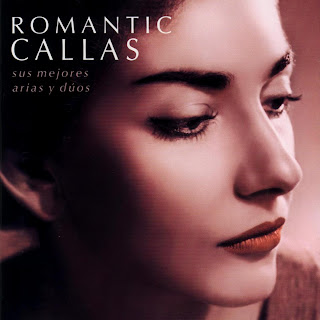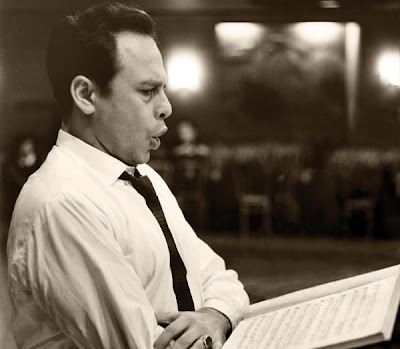Icy Princesses and Bartered Brides

 This weekend I had the opportunity to listen to two excellent recordings. The first was the 1964 recording of Puccini's Turandot conducted by Gianandrea Gavazzeni featuring Birgit Nilsson, Franco Corelli, Renata Scotto, Nicola Zaccaria, and the La scala orchestra and chorus. Later, a friend brought over the 1982 recording of Smetana's The Bartered Bride featuring Gabriela Beňačková, Peter Dvorský, Miroslav Kopp, and Richard Novák, backed by Zdenek Kosler and the Czech Philharmonic Orchestra. Both were excellent recordings. Turandot is, of course, a standard of late romantic repertoire and The Bartered Bride particularly interests me as the piece will be performed by my colleagues here at Lawrence University next year.
This weekend I had the opportunity to listen to two excellent recordings. The first was the 1964 recording of Puccini's Turandot conducted by Gianandrea Gavazzeni featuring Birgit Nilsson, Franco Corelli, Renata Scotto, Nicola Zaccaria, and the La scala orchestra and chorus. Later, a friend brought over the 1982 recording of Smetana's The Bartered Bride featuring Gabriela Beňačková, Peter Dvorský, Miroslav Kopp, and Richard Novák, backed by Zdenek Kosler and the Czech Philharmonic Orchestra. Both were excellent recordings. Turandot is, of course, a standard of late romantic repertoire and The Bartered Bride particularly interests me as the piece will be performed by my colleagues here at Lawrence University next year. I will begin with a review of the disc of Turandot. The opera itself is classic Puccini, grand in style, big musically, and preoccupied with exotic culture. In terms of review, I will start from the small upward. The chorus does a good job playing its role in a late romantic opera. The voices don't blend the way they might in a concert choir but this is to be expected in this genre. The soprano voices tend to be a bit overpowering to the rest of the chorus, but it is possible that they simply carry better in the recording. Nicola Zaccaria, in the role of Timur, is an interesting study in bass darkness of tone. Though he sings well and manages the lines with finesse, his voice has a bit of an inky feel to it that colors it, at times, somewhat away from beauty. Nonetheless, in a sense this vocal peculiarity fits the role. Timur is an aging king who has been deposed and has lost everything (including, until the moment he meets Calàf in the opera, his son). This sad weariness fits the darkness in the voice, all in all making Zaccaria a capable Timur. Renata Scotto as Liù is another voice that appropriately fits the role. Scotto is, of course, regarded as one of the premier sopranos of her day. However, in this recording she was a bit younger and less experienced, with a voice less developed. This shows in her two major pieces, "Signore, ascolta," and "Tu che di gel sei cinta." The voice, though presaging its future beauty, becomes a bit thin and airy at the top, losing the darkness in the resonance. It is important to understand however, that as Zaccaria's unusual voice fit his role the youth of Scotto fits the role of the young ingenue Liù quite nicely.
I will begin with a review of the disc of Turandot. The opera itself is classic Puccini, grand in style, big musically, and preoccupied with exotic culture. In terms of review, I will start from the small upward. The chorus does a good job playing its role in a late romantic opera. The voices don't blend the way they might in a concert choir but this is to be expected in this genre. The soprano voices tend to be a bit overpowering to the rest of the chorus, but it is possible that they simply carry better in the recording. Nicola Zaccaria, in the role of Timur, is an interesting study in bass darkness of tone. Though he sings well and manages the lines with finesse, his voice has a bit of an inky feel to it that colors it, at times, somewhat away from beauty. Nonetheless, in a sense this vocal peculiarity fits the role. Timur is an aging king who has been deposed and has lost everything (including, until the moment he meets Calàf in the opera, his son). This sad weariness fits the darkness in the voice, all in all making Zaccaria a capable Timur. Renata Scotto as Liù is another voice that appropriately fits the role. Scotto is, of course, regarded as one of the premier sopranos of her day. However, in this recording she was a bit younger and less experienced, with a voice less developed. This shows in her two major pieces, "Signore, ascolta," and "Tu che di gel sei cinta." The voice, though presaging its future beauty, becomes a bit thin and airy at the top, losing the darkness in the resonance. It is important to understand however, that as Zaccaria's unusual voice fit his role the youth of Scotto fits the role of the young ingenue Liù quite nicely.Birgit Nilsson heads up the role of Turandot and does a superb job. A Wagnerian soprano, she has the power to command the role of icy, standoffish Turandot. However, she the voice does not suffer from the stereotypical over-wobbly, dark sound often associated with very dramatic soprano voices. Instead, it maintains a lightness and a lift (as Oren Brown notes in his book when he discusses her warming up using the Queen of the Night). "In questa reggia," Turandot's explanation for her refusal to love, displays this balance splendidly. This combination, in addition to setting her distinctly apart from Scotto as Liù, puts her in a perfect position to portray a woman who spends much of an opera railing against the entrapment of love but who, ultimately, melts to a man who manages to beguile her tests.
The last member of the cast, and the one who stands out most noticeably, for better or worse, is Franco Corelli. "The Prince of Tenors" brings to the challenging, heavy role of Calàf his characteristic baritonal bark. Corelli's critics find his voice to be uneven and rough. It is true that his onsets do possess quite a bit of bite to them and his tone has a sense of raw, chaotic energy. He does employ the burst of tone that might be considered a vocal cry perhaps a bit too often as he releases notes as well. In these regards, the critics do have some points. The darkness and baritonal bite can be attributed to the fact that Corelli attempted to be a baritone for part of his career and had a dark, dramatic voice in any case. The other criticisms can be, I believe, attributed to the fact that Corelli became his own teacher after dissatisfaction with his first few instructors. Despite these criticisms listed by Corelli's detractors, his voice has some singular, spectacular characteristics that can't be found anywhere else. The thrill of the man rising into his upper range is incredible. Opera fans love tenors like Pavarotti and Florez because of their seeming ease of access to their upper range. Corelli had no trouble accessing his high notes, but made them sound like things with spectacular effort behind them. In this way, he sounded neither strained nor like he was simply hitting a note. This brings the emotion of the high notes out. Though perhaps less technically organized than other singers, the trademark "Nessun dorma" in this recording has emotion difficult to find from other singers. Corelli had a very unusual voice, it's true. There are those that love it, and there are those that hate it, but passionate singing done from the soul such as expressed by Corelli here is hard to come by. (and - the crowd loves it in the recording!)
 Well, that wraps up the summary of the voices in Turandot. It was a good listen, but of course a CD recording can never match up to hearing the voices and the music, and experiencing the story played out live on stage. With that review done (and longer than I anticipated...) I'll move on, briefly to Smetana's The Bartered Bride.
Well, that wraps up the summary of the voices in Turandot. It was a good listen, but of course a CD recording can never match up to hearing the voices and the music, and experiencing the story played out live on stage. With that review done (and longer than I anticipated...) I'll move on, briefly to Smetana's The Bartered Bride.I had listened to a few YouTube clips of the opera before hearing this full recording and was initially unimpressed. However, this recording changed my mind on the piece. There are a number of wonderful arias, duets, and group scenes throughout the show and the narrative is compelling. Unfortunately I can't refer to songs or specific parts as the CD was that of a friend. Nonetheless, I found the translation used on this CD much better than those on the YouTube videos and the singing sounded less hokey and more sincerely operatic. This gave the narrative of the piece considerably more meaning. I am excited to hear my own colleagues begin working on this piece and will probably have more information on a variety of recordings of it in a future post.
Thanks! Keep following along!




Comments
Post a Comment